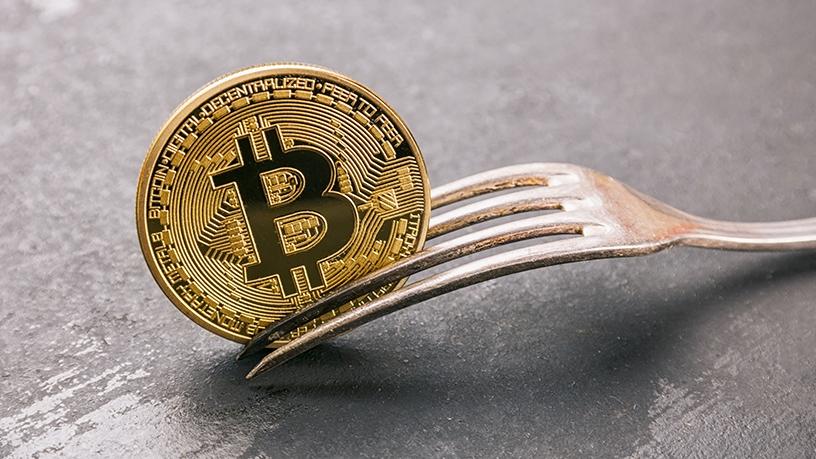
Local crypto-currency experts say it will be impossible for exchanges to accept all Bitcoin forks.
Last month, ITWeb reported that some Luno customers alleged the Naspers-owned company is ripping off people as it has decided not to support Bitcoin Gold even though it supported the Bitcoin Cash fork earlier.
Farzam Ehsani, former blockchain lead at Rand Merchant Bank who is now co-founder and CEO of VALR.com, says Bitcoin code is open source and free for anyone to see and download.
He explains that a Bitcoin fork is simply someone taking that open source code and tweaking it, even ever so slightly.
"There are many different types of forks such as hard forks, soft forks and source code forks, which is what many altcoins are, including Litecoin," says Ehsani.
"For example, Litecoin's code is nearly identical to Bitcoin's except for factors such as a shorter block generation time, four times the maximum number of coins and a different hashing algorithm used to secure the network."
Shared history
According to Ehsani, soft forks and hard forks have some shared transaction history, but the fork has resulted in a change of code during the life of the blockchain.
"There have been thousands and thousands of Bitcoin forks, very few of which have gained any momentum or mainstream adoption. My own teams in the past have forked the Bitcoin code."
He points out it would be impossible for exchanges to support all Bitcoin forks but when a fork garners enough community support and market value, certain platforms will start supporting these forks too.
"But it is a complex process that comes with its dangers and isn't straight forward. Without getting into the detail, concepts such as replay attacks are sometimes difficult to manage and can risk the value on the original chain.
"Ultimately, if you want to have control of which forks you want to support, you should personally be in control of your own private keys and not leave your crypto-currencies on an exchange or with a third-party wallet."
For Richard de Sousa, partner at SA-based crypto-currency exchange AltcoinTrader, some forks are more profitable than others depending on how valid the coin is and the team behind the fork.
He notes investors have made a lot of money, provided their coins have been in an exchange that supports the fork, or if they have held their own private keys.
According to De Sousa, very often a Bitcoin fork will die out because of lack of support and a team that can run the fork.
"Anyone without permission can fork Bitcoin. Only when there is a strong movement behind it, will the fork have some value and go onto exchanges."
He adds that whether exchanges are reaping the rewards or not, they are keeping the coins and certainly have custody of the coins.
"Bitcoin Gold and many of the smaller forks may not be as well positioned as Bitcoin Cash, but this is considered a main fork. Exchanges might not support every single fork, as some forks are risky, but they still receive the coins.
"It is their discretion to decide whether they want to give their clients and they chose not to. We can be led by industry standards of what most credible exchanges are doing and most credible exchanges did support Bitcoin Gold.
AltcoinTrader, apart from supporting Bitcoin Gold, gave Bitcoin Private users on its platform on 18 April as the third Bitcoin forked coin.
"First prize is to hold your own private keys of your wallet so you would benefit from all the forks and second prize is definitely to use credible exchanges."
Unanimous decision
Carel de Jager, consultant at the Blockchain Academy, notes that sometimes the protocol needs to be upgraded, a bug needs to be fixed, or (controversially) a transaction in the ledger needs to be reversed.
"If such a decision is not completely unanimous between all of the nodes, it results in a contentious hard fork. When this happens, the blockchain splits in two and a new crypto-currency is created."
He adds that forks can be profitable to investors, especially if there is a high demand for the newly-created coin.
"The demand tends to be strongly correlated to exchanges' decision to list the new coins, and this in turn is dependent on the coin security features, development team and community interaction. In some instances, a strong use case for the new coin can also drive demand. Bitcoin Cash, for example, allows for cheap transactions through increasing the block size."
According to De Jager, the code behind Bitcoin Cash is also secure, especially with regards to replay protection. Bitcoin Gold, on the other hand, has a much smaller community working on the project and there are doubts about how secure the code is.
"Different exchanges have different appetites for risk with forks. Luno is very risk-averse and would not list a fork if it is not 100% sure it is safe to do so. Some exchanges are less concerned and would be more willing to list a fork. Each exchange has its own criteria with which they review a coin's security.
"Before a fork occurs, you as an investor should make sure you own your private keys if you wish to claim the forked coins. And then you should wait a few days after the fork before you claim and start doing transactions since there will always be risks of replay and 51% attacks immediately after a fork. A good rule of thumb is to wait for exchanges to start listing the coin before transacting," he concludes.
Share